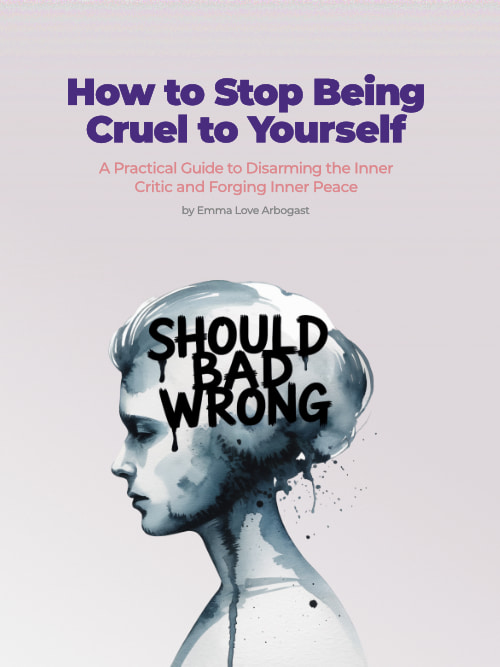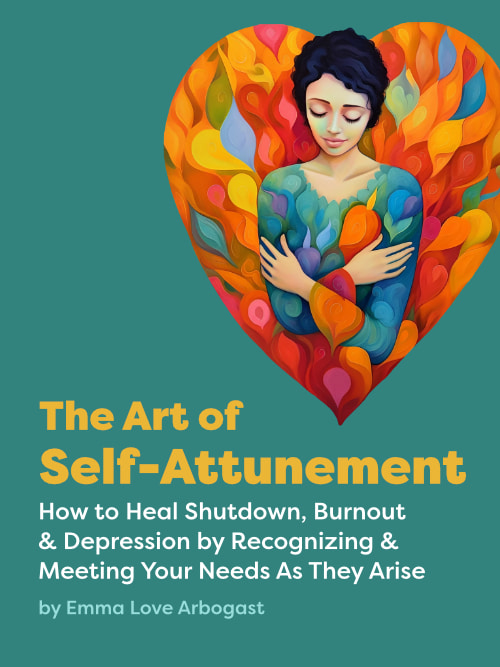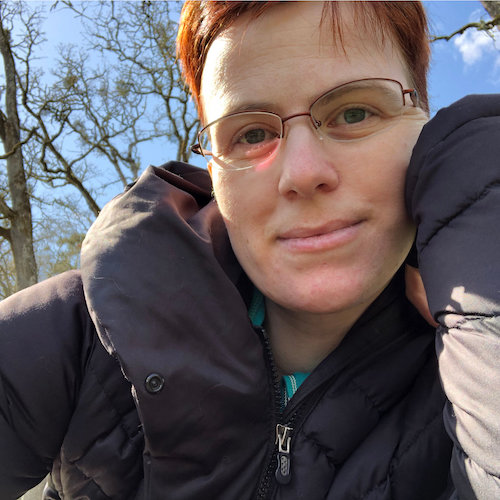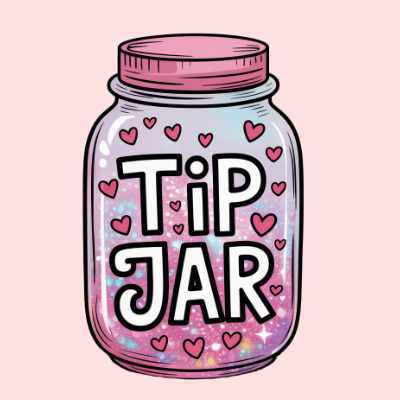I am autistic
Hey, guess what? I’ve realized that I’m autistic. Let’s unpack that.
This is a Big Deal, and also, I’m the same person I was last week. (In case you were wondering.)
It’s completely recontextualizing how I see myself, and it’s making sense out of a fistful of puzzle pieces that I’ve been carrying around with me my whole life, that I could never make fit.
Things like:
- If my main issue is CPTSD and attachment, why does working on those things not actually move the needle on my “other people” issues?
- Why can I explain human behavior in impeccable detail, but still not actually reliably connect or get along with other people unless I try extremely hard, and even then, I always have the vague feeling that I’m getting it wrong and don’t know why?
- Why do I feel like an alien who doesn’t fit on this planet no matter what healing work I do, or what group I join, even groups that are explicitly built around connection and belonging?
- Why do I seem to relate to ethics, meaning, and reality, so differently than other people?
- Why does going to the grocery store feel like I’m swimming through an ocean of chaos and fragment my attention into a million pieces? And why does it take me two days to feel like “myself” again? (This was the last piece of the puzzle, more on this below.)
This process of realization started in earnest with me realizing I have ADHD, but I’ve actually been looking at the list of autism criteria my whole life and then ruling it out (similar to my relationship with ADHD). It’s a periodic thing I do whenever I feel like my “weirdo-ness” is just reaching peak weirdo, and I need an explanation. And then I look through the list again, and think, “No, that’s not me. Guess I’m just weird for no reason then,” and I go back to my life.
I’ve also been watching autism creators on YouTube for like…a long time…but not really thinking too hard about why I might be doing that. Like, “Oh yeah, I’m not like that. That’s not me.” and then I just keep watching, because like, it’s relatable and all, even if I am not really autistic and….yeah. If you find yourself constantly relating to autistic creators, while they are talking about their autism, then maybe think about why that is, Emma??
In my defense, self-awareness is one of those executive function things I struggle with. So even though I probably seem very self-aware because I write constantly about myself in exacting detail, the reason why I do all this is that it’s actually extremely hard to figure myself out, and writing helps me do that. But I don’t actually just spontaneously know myself. I work very hard at knowing myself.
Where was I? Ok, so realizing ADHD does in fact fit me, and knowing that there is a huge overlap between ADHD and autism, and understanding now that masking can do a number on how well these lists and criteria fit you, I started studying myself intently, to try to understand two things:
- Do I actually have sensory issues after all? (One of the big reasons I had ruled out autism)
- Is X autism? (with X being a long-ass list of “Is this autism?” memories and “things I do” and “ways I am” that I have been collecting.)
I do have sensory issues, actually
It turns out my sensory issues are so pervasive that I just numbed myself to feeling them at all, and compartmentalized the pain of being constantly overstimulated until I didn’t consciously notice it, and so I didn’t think I had sensory issues at all.
It hurt, and I didn’t know what to do about it, so I just unconsciously suppressed it.
When I did tap into it, I told myself, “Well, it’s just trauma”. Some really early kind of trauma, that just is lodged so deep in my nervous system that I can’t get it out, no matter what I do.
Masking isn’t just social pretense. It’s a set of stories you tell yourself about yourself to explain what you cannot explain.
It was only the contrast of spending so much time at home alone, and then going to the grocery store recently, while I was paying much closer attention to my experience, that made it obvious to me. And it wasn’t any particular thing in the store, it was just the all-everything-too-muchness of it. I couldn’t even focus on anything in particular. My memory of it now is an impressionistic blur, the way you would remember almost drowning.
But it’s happened before: I remember now. (There are all these little anomalies in my life that I pushed away at the time, that are bubbling to the surface, and I’m seeing differently.) I actually learned to avoid Home Depot because if you stand there looking like you are drowning for too long, employees will come up to you and ask if you are OK, which just makes it worse.
Another memory bubbled up from a few years ago, when I was going for a walk. Someone was sitting on their porch, and they decided to start playing their guitar just as I walked past. It felt like a wave swept toward me. I felt a visceral sense of needing to step sideways. I had a flash of anger and annoyance that he had pushed me.
But of course, he hadn’t. He was doing a normal thing, from 20 feet away. My anger didn’t make any sense to me, so I decided it was an anomaly. In that moment, I didn’t think, “Oh wow, I have sensory issues, maybe I should revisit that whole autism thing”. I thought, “Well, that was weird!”, wrote it in my journal, and then forgot about it.
Paradigms shift when all the anomalies suddenly can’t be ignored or explained, and we find some new explanation that makes sense of them all. But that means we ignore the anomalies until we can’t anymore.
I always imagined sensory issues would feel like my senses being assaulted, in the moment it was happening, by a specific thing. Like, “that light is too bright”, or “I don’t like that texture”. And I imagined that I would know and remember and be able to list and recite all these things that I don’t like experiencing. And I don’t have a mental list like that, so I must not have sensory issues, right? (This is remarkably similar to how I avoided acknowledging my ADHD, by insisting that I never forget my keys…when I constantly forget everything else).
What I’m now realizing is that I habitually ignore my body’s signals, and once I’m overwhelmed, I can’t distinguish what exactly is overwhelming. So I don’t really have good data about what is overwhelming to me.
I have a whole lot more data on what it feels like once I am overwhelmed–I get grumpy, snarky, angry, and really hard to be around. That has been happening my whole life. I just didn’t understand why, so I called it different things–CPTSD, attachment, or just being a mean person. I kept trying to work on being a nicer person. But I’m nice enough when I’m not overwhelmed. So the skill to learn here isn’t a people skill at all–it’s the skill of managing my sensory environment so I don’t get overwhelmed. Because no drowning person is capable of being nice.
So: sensory issues, check.
But what about “restricted, repetitive patterns of behavior, interests, or activities…stereotyped or repetitive motor movements…insistence on sameness, inflexible adherence to routines, or ritualized patterns of verbal or nonverbal behavior…highly restricted, fixated interests that are abnormal in intensity or focus…etc”? From the DSM V.
Yeah, about those.
Why the DSM does not describe me
When I would look at lists of “this is autism”, I couldn’t see myself in the criteria, which are usually based in the DSM V description. And there are two very good reasons for this.
- The DSM, like most medical stuff, is based on male presentation, and autism in females can often show up pretty differently. It is also, like the criteria for ADHD, not based in the autistic neurotype, but based on a model of disorder and dysfunction. So if your autism didn’t show up as a “problem” to your parents, or in school settings, you would have been missed entirely, which a whole generation of people, especially women/DFAB folks, have been.
- I’ve been masking my whole life. And the way that I, in particular, have masked, has been to try to absorb the entire field of human behavior and try to reverse engineer fitting in. And it didn’t work. But I had invested so much in telling myself it was working, that I didn’t want to admit to myself that I really am still just baffled a lot of the time about how socializing works.
So the DSM is a very bad map to follow for a middle-aged female autistic person trying to figure themselves out. Especially one that is also gifted, strategic, did well (enough) in school, and has been studying psychology and “how to fit in” skills with a lot of dedication for a really long time.
So yes, I can generally maintain eye contact, unless I’m upset, hurt, or thinking about what to say. I can recognize facial expressions (I just don’t always know what to do about them). I understand sarcasm, but I don’t always understand subtext, and I often take things too literally, and it takes me juuuust a bit too long to get jokes (because I have to run through every possible literal interpretation before I hit on–oh! it was a JOKE!).
But in general, it’s not immediately obvious to me or anyone else that I’m autistic, or I would have already been diagnosed a long time ago.
On top of that, every autistic person is an individual and their autism manifests differently. So it’s easy to watch a video of one particular person explain how their autism is for them, and think, “nope, that’s not me”.
The sign on a map that I finally recognized as Completely Me was this article on NeuroClastic: Very Grand Emotions: How Autistics and Neurotypicals Experience Emotions Differently. It describes how we don’t lack emotionality, but rather that we invest our emotions in different things than neurotypical people do.
This sentence from that page sums up the problem with using the DSM, and material written by neurotypical people in general, to understand ourselves:
As long as the characterization of what autism means is pathologized and wildly misunderstood, the majority of autistics will not find their way to a diagnosis.
Then I read their entire What is Autism page, including all the linked articles, which are all written by autistics about ourselves, and I was like Oh. It’s all of this. This is who I am, and have always been.
But it’s also exactly who I’ve been trying not to be, which is why I didn’t realize it.
I have been masking my autism my whole damn life
Masking is about survival. So you develop a kind of defensiveness around it.
Internalizing that I am autistic felt like admitting that I had failed at being normal.
It means accepting that I will never pass a test that I’ve been studying for and trying to pass over and over again my whole life. My brain didn’t want it to be true. So even though all of these anomalies have been flirting at the edge of my awareness and trying to crystallize, it just took time to emotionally come to terms with it.
There is also a massive stigma toward autism, which is way way worse than toward ADHD. I spent several days reading about anti-autism hatred and everything that is said about us. That we are narcissists. That we are cold, inhuman monsters. That we are incapable of empathy. That we are not really human.
It wasn’t fun, but I needed to know. I needed to face it and integrate it. I needed to grieve it and accept it. Because that is part of de-internalizing it. And I refuse to carry self-hatred for any reason. So I had to examine and understand and deconstruct the stigma. (Not saying I’m finished in two days LOL. Just that I did a deep dive into it and was curled up on the couch in a ball crying from it. I’m sure there will be more to come.)
I understand now that I lean into the cute/quirky kind of weird because I’m trying to avoid being seen as the off-putting kind of weird. I know that some people just instinctively don’t like autistic people if we are just being ourselves. I know that, because I was bullied horribly as a kid–by other kids, by teachers, and by my own family. And I didn’t know why. It always baffled me.
But now I understand that it is because I am different in a way that made me a target. And there was literally nothing I could do about it, because I didn’t understand why it was happening and I had no way to understand it, and no way to make it stop. So I just endured it.
I learned to mask for a very good reason. And I put an enormous amount of care and energy into that mask. Because I didn’t know it was a mask.
I tried as hard as possible to believe that through all my hard work, I had finally Become Normal. Or some close approximation of it, if you squint. Or at least, I was really really about to be, I swear, almost there, you can do it.
Because I didn’t know what else to do. I didn’t see any other option. My brain had to construct a self-image out of whatever data it has available to it. And I love myself–I knew I was doing the best job I possibly could, so I had to be succeeding, right? I couldn’t possibly have worked this hard, for this long, and just not be able to do it, right? I didn’t want to give myself a failing grade, so I was just constantly determined to try harder.
But now I’m realizing I don’t have to do this to myself anymore. I don’t have to try to become someone I’m not and can never be. Because who I am is already OK, just different.
I’m not a failed allistic, I’m a normal autistic
“Why do you need a label?” Because there is comfort in knowing you are a normal zebra, not a strange horse. Because you can’t find community with other zebras if you don’t know you belong. And because it is impossible for a zebra to be happy or healthy spending its life feeling like a failed horse. – OMGImAutisticAF
If the world was shaped by autistic people, it would look a lot different. The whole shopping for stuff situation would be really different, for one. Norms would be different. What is considered normal would be different. And I wouldn’t feel alien, weird, odd, strange, etc. I would just be the person I am, and the way the world works would make sense to me and work for me. I wouldn’t have to constantly think about how to adjust or adapt or cope–I could just exist.
I can’t make the world different. But I can think of myself differently. I can find people who think and interact like me. I can exist in spaces where I don’t have to constantly worry that I’m doing something wrong that I don’t understand.
And that is something I never even dreamed of. I don’t know what it feels like or looks like yet. It is the undiscovered country that you can only find after you let go of the quest to become someone else, and let yourself embrace who you have always been, and see everything you tried to hide and erase in yourself with new eyes.
I haven’t reached that country yet, but I have my passport and I’m getting on the plane. I know there will be traffic jams and pollution like any other country, but at least I might find people who speak the same language.
I hope to be able to see myself through the eyes of people who don’t find me socially deficient. Because as much as I have dedicated myself to the project of self-love, there is a limit to what you can accomplish by yourself when you are surrounded by a world that constantly finds you just not quite right–too much of this, or not enough of that.
My ADHD awakening felt like realizing it was unfair to expect myself to climb a sheer rock face with no gear. Understanding myself as autistic is realizing it is unjust to expect me to transform into a bird and fly. I am not a bird. I’m a unicorn. ?
Self-love is a set of skills you can learn

Stop Being Cruel to Yourself
$2.99


Hey there! If you're new here, welcome to the Emmaverse! 🌈✨
About me: I'm autistic/ADHD and I write about how to be free and happy from the inside out.
Keep in touch?
Self-Liberation Society

Hey Emma! I enjoyed reading this because I often wonder if I might be Autistic too. I discovered the ADHD only last year and I identify with a lot of Autistic traits but I keep telling myself it’s because of the overlap of symptoms between ADHD and Autism. Apart from the sensory issues thing, what made you realize it was Autism? I too find myself not realizing jokes and sometimes taking things literal but doesn’t everyone sometimes? So confused and I can’t afford an Autism diagnosis right now.
I have a friend who was diagnosed a few years ago and talking to her about it was really helpful. It was a lot of different realizations that sort of built up. I had a moment of realizing just how much sensory stress I was suppressing all the time that I had just tuned out but it was still there right under the surface. And I rethought about all the bullying and ostracism I experienced as a kid and how much of the time I just didn’t quite understand what was happening socially and so I was an easy target. So many friendships over the years that have abruptly ended and I still don’t understand why. Realizing that I really don’t have social anxiety, I have masking-and-overstimulation-fatigue, which can both make people want to stay home but for very different reasons. There are a lot of autistic Youtubers that talk about their experience. I don’t personally care about a diagnosis, it was just a personal realization and rethinking how I do self-care and giving myself permission to be myself.